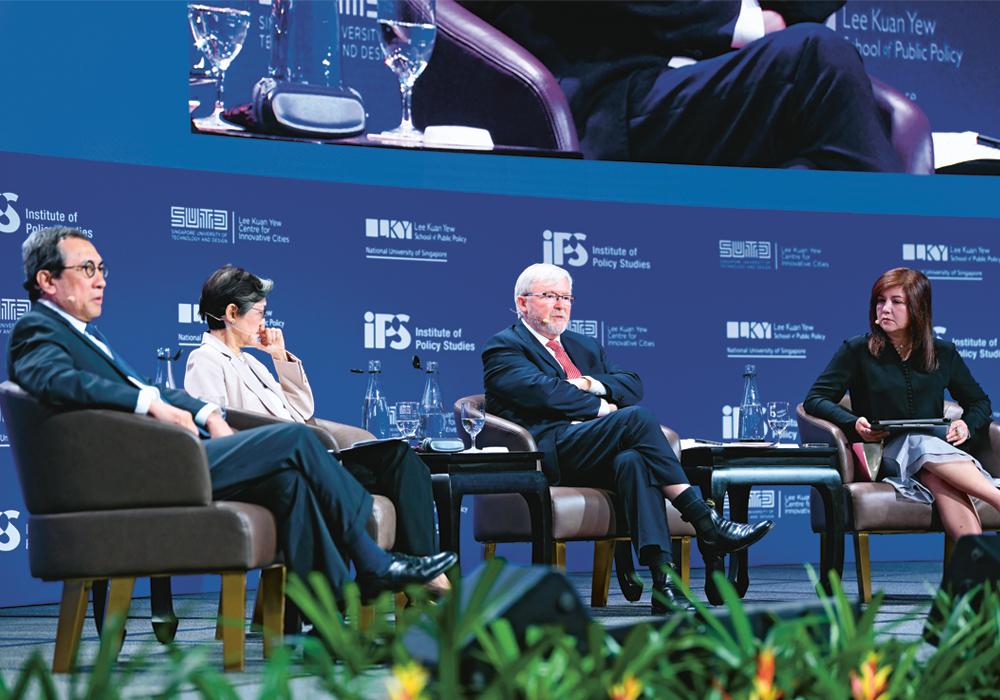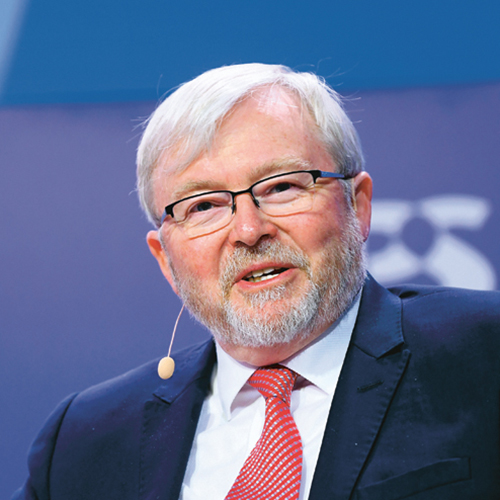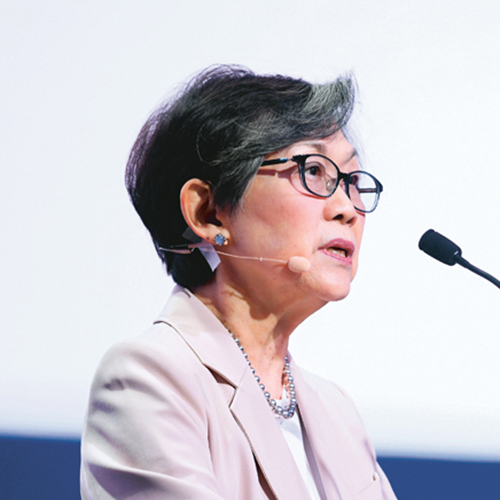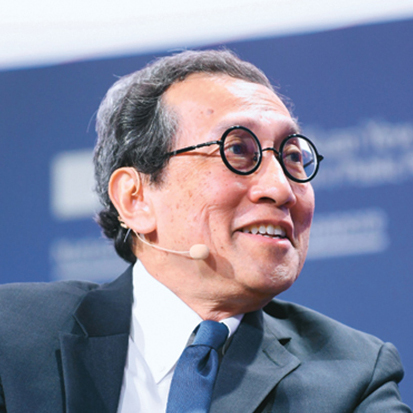Small states, big moves: Steering through global power plays
Three big names in international relations shared their insights on the role of small nations in a capricious geopolitical realm at a recent conference to mark the 100th birth anniversary of Singapore’s founding Prime Minister Lee Kuan Yew.

The Reinventing Destiny Conference on 14 August 2023 was more than an event; it was a compass for understanding the resilience of small states in today’s volatile geopolitical landscape. An engaging panel session, “The Small State in a Turbulent World”, featured remarks from prominent figures, each adding their nuanced perspective to the diplomatic discourse. The conference, which was attended by about 900 participants, was held at the Sands Expo and Convention Centre, and was organised by the Lee Kuan Yew Centre for Innovative Cities, Singapore University of Technology and Design; Lee Kuan Yew School of Public Policy and the Institute of Policy Studies at the National University of Singapore (NUS). Moderated by Ms Zuraidah Ibrahim, Executive Managing Editor at the South China Morning Post, the panel featured the Honourable Dr Kevin Rudd, former Prime Minister of Australia; Mr Bilahari Kausikan (Arts and Social Sciences ’76), Chairman of the Middle East Institute at NUS; and Professor Chan Heng Chee (Arts ’64), the former Chair of the Lee Kuan Yew Centre for Innovative Cities and Ambassador-at-Large, Ministry of Foreign Affairs.

The maintenance of strategic equilibrium is the most effective means of maximising the individual political agency of smaller states.
Dr Kevin Rudd
Beyond military might
Dr Rudd, currently Australia’s Ambassador to the United States (US), dived deep into the complexities of strategic equilibrium in an era of shifting power dynamics. He provided a sweeping analysis of global dynamics, emphasising the importance of maintaining this delicate balance. While military capabilities are crucial, strategic equilibrium also hinges on economic prowess, technological competition and adherence to international norms, he argued.
Especially for small nations, caught in the turbulence of global politics involving the US and China, Dr Rudd’s analysis offered a road map for preserving autonomy and negotiating leverage. “The truth is that the maintenance of strategic equilibrium is the most effective means of maximising the individual political agency of smaller states,” he said.
Dr Rudd’s remarks underscored the critical role that alliances and regional associations – such as the Association of Southeast Asian Nations (ASEAN) – play in enhancing a nation’s policy freedom, as well as the perils of a breakdown in this equilibrium. “Almost all states, large and small, have a deep interest in maintaining the status quo, because all people want to maximise peace, prosperity and sustainability,” he said. “However, we cannot simply wish these things into existence. At its logical core, it requires the maintenance of strategic equilibrium as the fundamental enabling factor. [The conflict in] Ukraine provides a telling example of what happens when equilibrium and deterrence fail.”

(Singapore) must be able to speak up and be relevant. And to do that, we have to build up a strong, successful economy and society.
Professor Chan Heng Chee
A nuanced balancing act
Prof Chan provided a lens into Singapore’s strategic response to the shifting global landscape. She explained the historical context of the nation’s growth, coupled with its ability to navigate a complex world order marked by fragmented alignments. “The intense geopolitical rivalry between the US and China, complicated by the Russian invasion of Ukraine, has converted our region, East Asia, unprecedentedly into a dangerous hotspot,” she said.
However, Prof Chan pointed out that the current tensions did not represent a return to Cold War dynamics but rather, an era marked by many nations exercising their sovereignty and agency in a multipolar world. Against this backdrop, Singapore’s approach is multifaceted: maintaining strong relationships with both superpowers, strengthening regional organisations like ASEAN, and playing an active role in global trade agendas.
Prof Chan also highlighted the need for Singapore to make its voice heard on the global stage. “We must be able to speak up and be relevant. And to do that, we have to build up a strong, successful economy and society,” she said. “No one during the Cold War would have listened to us if we were a basket case. No one will listen to us now if we are a basket case.”

We have now returned to a more historically normal period of international relations, and we’ll have to deal with the world as we find it.
Mr Bilahari Kausikan
Taking control of Singapore’s destiny
In his speech, Mr Kausikan outlined what Singapore needs to do to thrive in the global environment, focusing on three vital factors: perspective, agency and the primacy of politics. He encouraged viewing world events in their historical context, neither downplaying nor exaggerating their significance. “We have now returned to a more historically normal period of international relations, and we’ll have to deal with the world as we find it,” he said. “Doing so requires us to promote a regional balance of major powers and maintain a strong capability for deterrence within that balance. There is no realistic alternative.”
Mr Kausikan argued that as a small state, Singapore is not without agency, and has shown time and again its ability to take control of its own destiny. He warned against succumbing to fatalism in the face of great power competition, and cited key reasons for Singapore’s success. “Singapore’s first-generation leaders were a rare combination of natural politicians and technocrats,” he described. “They were not just able to win political fights but to govern effectively,” he said, adding that our current fourth-generation leaders must become more like those of the first generation in these respects.
As the world grapples with myriad challenges and uncertainties, the Reinventing Destiny conference illuminated a path for small states like Singapore. Armed with the right principles and strategies, even small states can assert their place and successfully chart their course through the complexities
of international relations.